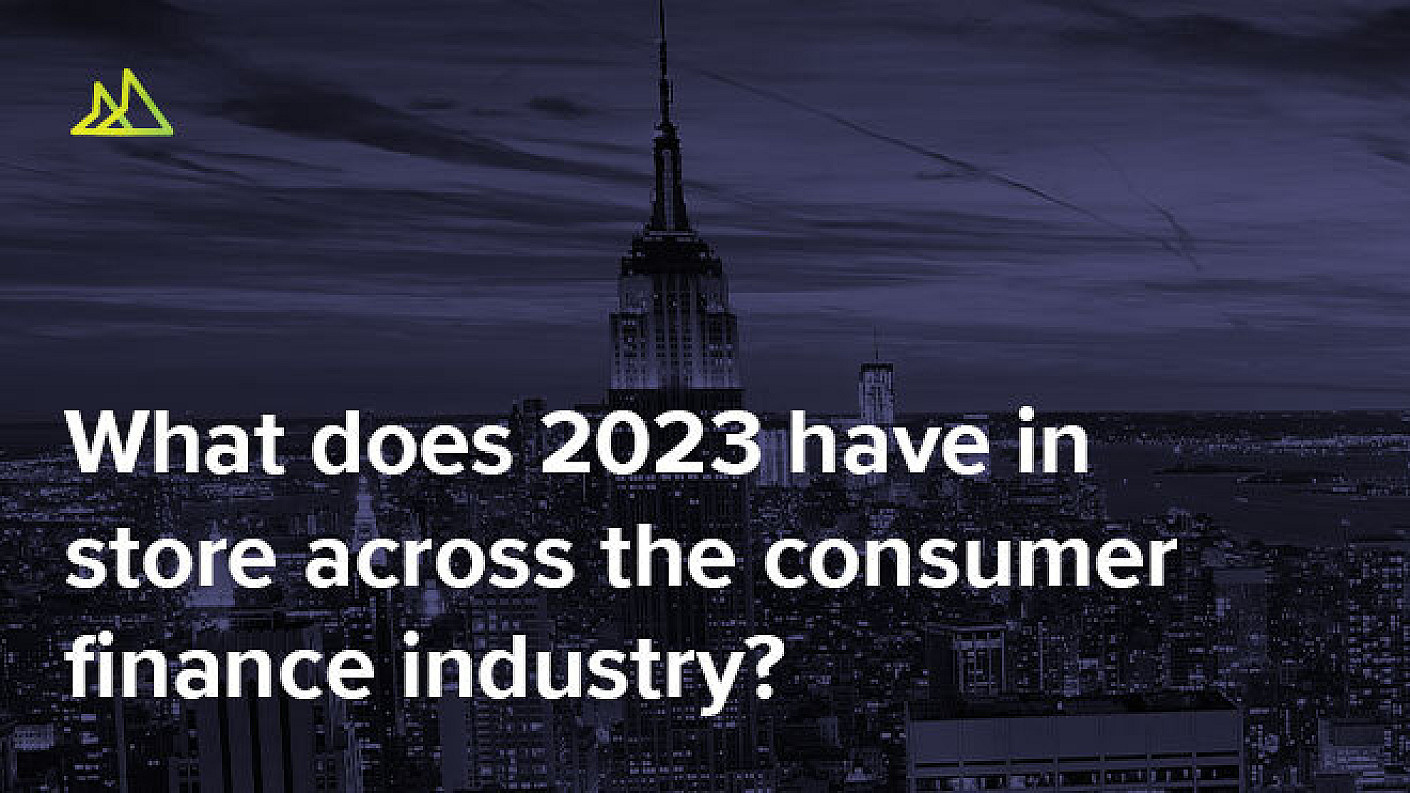Here at Monevo, we anticipate 2023 will be an interesting year. The world faces its first in 3 years without Covid restrictions, we know the war in Ukraine is set to continue, new regulations come into play, and the world markets try to find a stable playing field.
This got us thinking about what the next 12 months will have in store for our industry and spent some time researching thoughts and insights from a wide range of businesses, expert industry commentators and our own network. These were the themes we discovered:
- A Recession is likely
- Interest rate rises and then flattening
- Softening consumer demand
- Reduction in overall supply of credit
- Cost of credit likely to increase
- Credit providers looking at optimisations and cost savings
Following our findings, some of our leadership team have given their predictions of what this means for the UK consumer finance markets in 2023. We share these with you here and aim to track them throughout the year.
Lee Stretton, Chief Innovation Officer
With inflation still high, interest rates will likely be increased by the Bank of England in the first half of 2023, probably by another 100 basis points to 4.5% before the increases flatten out in the second half of the year. This will affect the interest rates of products such as loans, credit cards and mortgages that are available to consumers.
Due to this, I predict that consumers will start to take more interest in their own financial wellbeing. It looks like the era of really low cost finance has come to an end and the current interest rates will likely be the new normal going forwards.
From a supply perspective, we are likely to see some credit providers tighten their eligibility criteria as consumers finances come under pressure as inflation and the cost of living crisis continues to erode disposable income and the almost certain recession bites.
These pressures will increasingly drive lenders to be even more mindful of the affordability of credit. To mitigate this they will look to leverage additional data sources as part of their decision making process as to whether they will lend to an individual or not. Customers who may be an edge case will likely be subjected to more additional checks, such as open banking or further income verification checks.
Dawn Wood, UK Territory Director
In what is likely to be a challenging trading environment, I think we will see two key themes from credit providers this year. Some will tighten supply of their core products and focus on managing their existing books, while conversely as the market changes, we will see some lenders looking to innovate and take advantage of the market conditions by expanding their range or products. This will be to service more customers, especially those that are now being unserved by the first group or have found themselves wanting & being open to less traditional products as their financial situation changes.
In 2023 consumers will shop around more for loans, credit cards and mortgage products. In 2022 we saw an average of 3.2 applications per consumer and I predict this will increase steadily throughout the year as consumers try and find the best financial options available to them in a market where prices are likely to rise and availability is restricted.
Sheraz Afzal, Group Compliance Director
Increasing interest rates coupled with declining house prices will impact consumer spending for discretionary expenditure, so I predict a reduction in demand for certain types of unsecured credit such as loans and credit cards is possible.
The softening in the housing market, again driven by increasing interest rates, is likely to see people staying put with an increase in home improvements providing an alternative to moving. Where consumers would use remortgages to finance these, I envisage it is likely that some consumers will leverage secured second charge loans instead, so demand for that product will increase along with other asset backed finance.
The consumer duty will be implemented this year. Historically, the FCA has shied away from price regulation, but recent interventions such as the high cost short term credit price cap and the general insurance renewal quotation remedies have shown an increasing appetite to get more active. The price-value outcome is an evolution from this. Manufacturers and distributors will have to share more information about product design, marketing strategies and ultimate customer outcomes and this fresh exchange of information is likely to create some unexpected results.
The credit information market study is something else to keep in view, and the changes to the BNPL sector will create some market changes.
What does this mean for consumer finance?
As the cost of living crisis puts pressure on individuals, their demands and expectations shift as well. More customers are looking for different credit options and increasingly tools & services to help them manage their credit score and financial wellbeing. Trading conditions for credit providers will be challenging over the next few months and we’ll need to see more acceleration of product innovation.
Monevo are constantly working with boundary-pushing new lenders in the credit space helping people gain better access to credit. We need to watch things closely and continue as a sector to meet any challenges as they arise.




